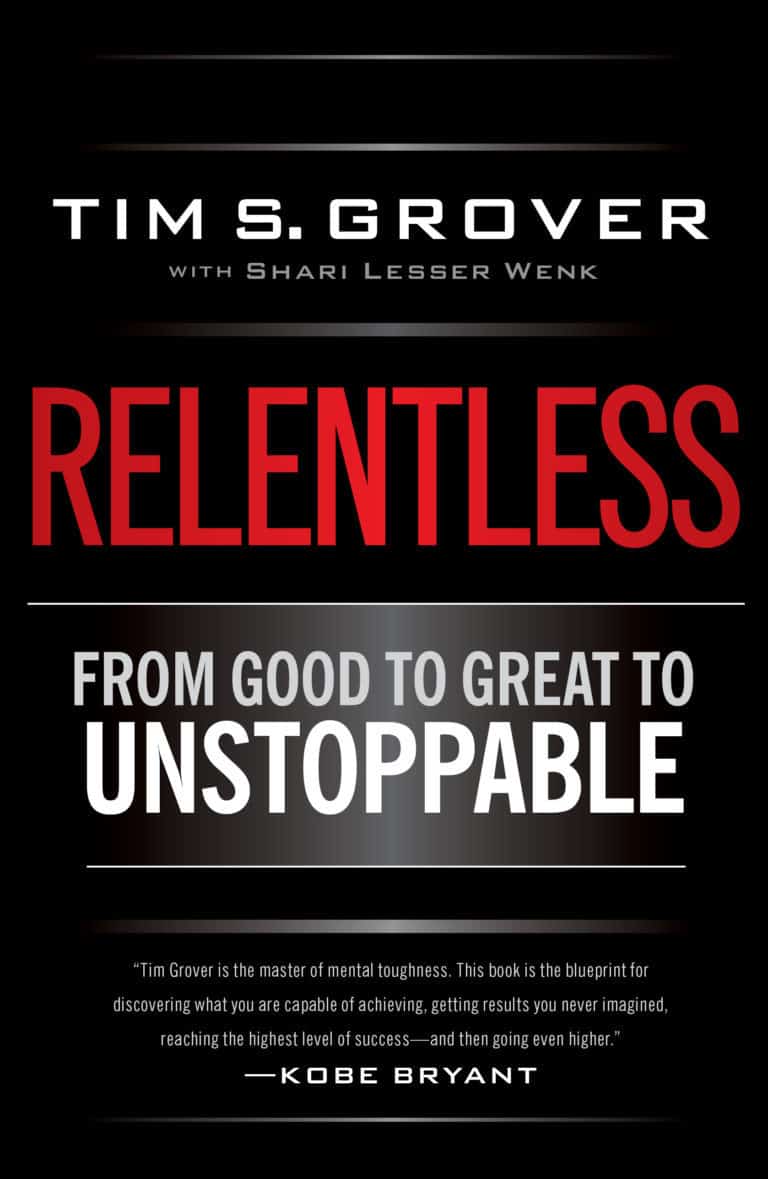Four Thousand Weeks by Oliver Burkeman (REVIEW AND SUMMARY)

Introduction
Four Thousand weeks is a book by Oliver Burkeman, that seeks to address the issue of time management from a deeply significant angle. In case the title was lost on you, 4000 weeks is how many weeks a human is alive, assuming they live to be 80.
With the human experience being so terrifyingly brief, how we spend our time should really be about how we live a full life so that we can experience everything this world has to offer. And yet; if you look to the “Time management” genre for guidance, you will mainly find advice and life hacks on how to answer more emails, increase profits, and squeeze more work tasks into a single day. Is that really what living our lives means?
4000 weeks is a time management book that addresses this issue from an original and philosophical angle.
What I thought of the Book
I seriously enjoyed this book. Burkeman identified an angle on time management, that we would probably all do well to consider. I re-listened to this book a few times for the purpose of summary, and each time revealed new insights that have since affected my own perspective.
I underestimated the extent to which I enjoyed this book, and it is a work I am sure I will revisit.
already convinced? click here to check out the book on amazon
Chapter by Chapter Summary
Introduction: In the long run, we are all dead
“The average human lifespan is absurdly, terrifyingly, insultingly short. Here’s 1 way of putting things into perspective. The first modern humans appeared on the plains of Africa at least 200,000 years ago and scientists estimate that life in some form will persist for another 1.5 billion years or more until the intensifying heat of the sun condemns the last organism to death. But you? Assuming you live to be 80, you will have had about 4000 weeks”.
We have been given a world with seemingly limitless possibilities, but we have almost no time at all to put our plans into action. On any meaningful timescale, we will all be dead any minute.
With the limited amount of time, we all have on this earth, how we manage our time could justifiably be considered our main concern. Yet the literature currently surrounding “Time Management” is mainly focused on how to complete more tasks, increase profits, operate on less sleep, squeeze more work into your day. If life is really so perilously short, shouldn’t we use our time to live the most fulfilling life possible? Shouldn’t our lives be about living? This is the question that this book tries to address.
Check out the author’s best advice on getting the most out of your time:
Chapter 1: The Limit- Embracing Life
“The real problem isn’t our limited time. The real problem, or so I hope to convince you, is that we unwittingly inherited, and feel pressured to live by, a troublesome set of ideas about how to use our limited time”.
Our modern way of thinking about time is so deeply entrenched in all of us, that it can be difficult to consider that time wasn’t always thought of in this way. Since the invention of clocks, we have come to think of time as something that operates separately from us. We feel guilty if time passes by and we don’t fill it with some activity that we consider meaningful.
Before our modern way of thinking, workers got up with the sun and slept at dusk- the length of their days varying with the seasons. There was no need to think of time as something separate from life- You milked the cows when they needed milking, and harvested the crops when it was harvest time. There was no anxious pressure to get everything done because a farmer’s work is infinite and if there is nothing to harvest, it can’t be harvested.
Historians call this way of living “Task Orientation” because the rhythms of life emerge organically from the tasks themselves, rather than from being lined up against an abstract timeline.
Of course, to live in a complete state of timelessness in a time-oriented world would be to severely limit what you can accomplish. With the industrial revolution and the boom of capitalism, small farm living was replaced with huge factories requiring constant maintenance, and the coordination of hundreds of workers. People started to be paid by the hour, as opposed to by a day’s work or a pig slaughtered.
Before clocks, time was just the medium in which life unfolded. The stuff that life was made of. Once time and life became separated, time became a thing that you used. It is this shift that is responsible for all the uniquely modern struggles and anxieties that we have regarding our time.
Read also: 7 People who showed moral courage throughout history!
Chapter 2: The Efficiency Trap
“How normal it has become to feel as tho you absolutely must do, more than you can do”
The problem with trying to make time for everything that feels important, or even enough of what feels important, is that you definitely never will. What matters is subjective- as soon as you get more done, you will find more that needs doing. There will always be important things that you should do, and you could do, that you objectively can’t ever get around to doing. Stop feeling as though there can be some future where all the boxes are ticked and your life is in perfect balance.
When you stop believing that you will ever achieve peace of mind by cramming more work into your day, it becomes easier to find peace of mind in the midst of overwhelming demands, because your peace of mind is no longer dependent on being able to meet your demands.
Burkeman also talks of the “infinite bucket list”- In a world full of things that seem worth doing (travelling to every country, experiencing different lifestyles, building organisations, giving to charities, trying foods, seeing art, writing books, etc, etc), Being stuck in the trap of needing to do more than you can do applies to our life itself, far beyond just our work.
Check out this great ted talk on the paradox of efficiency by writer and historian Edward Tenner:
Chapter 3: Facing Finitude
“We must live out our lives in clear-eyed acknowledgement of our limitations, in the undiluted mode of existence that Heidinger calls being towards death. Aware that this is it, that life is not a dress rehearsal, that every choice requires myriad sacrifices, and that time is always already running out”
The point is not to live as if every day is your last. The point is that it always actually might be. It is only by facing the reality that our time is limited, that you can step into a truly authentic relationship with life.
If you can learn to fix your attention on the sheer astonishingness of being, and on what a small amount of that being you get, you might experience a shift in how you feel about being here, now, alive in the flow of time.
The brevity of your existence could be viewed as a negative, what entitles anyone to any time on this earth at all? Whilst 4000 weeks feels painfully short in comparison to being itself, it’s 4000 weeks that you did nothing to deserve, that many people were never blessed to experience.
As a human, you are constantly choosing between lots of different valuable uses of time. By writing this article, for example, I obviously had to forgo spending this time doing something else that matters to me, like seeing my family and friends. It’s natural to see this dilemma as a highly regrettable aspect of human existence. But if it’s a miracle that any of us have been granted any being at all, Then wouldn’t it be not that we have to make such choices, but that we get to make them?
Chapter 4: Becoming a Better Procrastinator
“The real measure of any time management technique is whether or not it helps you neglect the right things”
The 3 principles of becoming a better procrastinator are covered in this chapter:
- Pay yourself first. Originally a financial concept, but equally relevant when it comes to time management. If you have a project that means a lot to you, and you struggle to see how it can fit in amongst all of your other obligations, you may have to just pay yourself first. Commit a chunk of time out of your day or week to completing that task, come hell or high water. You will see that project through, and you will accept any consequences.
- Limit your work in progress. Fix a hard upper limit on the number of projects that you have on the go at once. When you accept the fact that the amount of work you can do in a day is finite, you can stop fooling yourself and focus on nailing a few important tasks.
- Limit your mid-level priorities. Burkeman tells the story of Warren Buffett giving some advice to his personal pilot. He tells the man to make a list of the top 25 things he wants out of life, then to arrange them in order from the most important to the least. The top 5 are those which he should organise his time. The remaining 20, contrary to what you might think, are the ones that the pilot was advised to actively avoid at all costs. It is what you want, that will be luring enough to distract you from what you really want.
Check out Four Thousand Weeks on Amazon
Chapter 5: The Watermelon Problem
Attention is something more than a resource that you use in your life. It is more central to being than that. It is more appropriate to think about your attention as life experience itself, as without your attention there is no life.
This being said, being distracted can be seen as something very serious. When you give your attention to something that you don’t especially value, you could say that you’re paying with your life.
Distraction is more than just a short term lapse in concentration, like a text or a funny video online- When you take a job you don’t consider meaningful or you are investing a portion of your life into something relatively meaningless. Seneca had a lot to say on this topic in his work On the shortness of life when he criticised people pursuing political careers they didn’t really care about or throwing elaborate parties they didn’t really enjoy.
The point isn’t that it’s wrong to choose to spend time enjoying life, the point is that the distracted person isn’t really choosing at all.

Chapter 6: The Intimate Interrupter
We are so easily distracted because we do not want to confront our own finitude and limitations. Often it is not a specific task that is difficult and painful in and of itself, but our internal resistance to completing the task which causes us discomfort.
“The intimate interrupter- that self within the self that whistles and pounds upon the door panels, promising an easier life if only you’d redirect your attention away from the meaningful but challenging task at hand, to whatever’s unfolding 1 browser tab away.”
Why on earth are we rendered so uncomfortable by the things that we want to do the most with our lives, that we flee towards distractions which, by definition, are what we don’t want to be doing with our lives?
Whenever we set about doing something meaningful, we are forced to confront our own limited control over being. Maybe you don’t have the talent to build an organisation that is alive in your imagination. Maybe your book won’t take off like you imagined it could. Maybe you don’t have the answers. Your time is limited. You are a limited being. This is a deeply troubling feeling which we have all felt.
Chapter 7: We Never Really Have Time
“Any task you are planning to tackle will always take longer than you expect, even when you take into account Hofstadter’s law”
The fuel behind worry is your desire to be certain of things that more often than not, you just can’t be certain of. Our refusal to not accept our limited control over the future is a stark example of our inability to accept our finitude.
We never have time, in the same way, that we have money in our bank or shoes on our feet. When we say we have time, what we really mean is that we expect it. If you think you have two hours to complete a task, really you can only expect that you have those two hours. Any number of things could happen that could rob you of those two hours- serious or trivial. And even if you really do get two hours to focus on a task, you don’t actually know you are going to get two hours until the second that those two hours are up.
“You only ever get to feel certain about the future, once it’s already turned into the past”
To say that you will be alive for 4000 weeks is also inaccurate because no one really gets anytime at all in a sense of being guaranteed its arrival. It’s more accurate to say that you find yourself in each moment, as it comes, with all of its limitations and imperfections. That your life will just be a collection of moments like this.
The struggle for certainty about the future is a helpless pursuit, and so you should give yourself permission to stop engaging in it. You should still vote and plan your retirement and invest in your relationships for the best possible future. But you should also accept that you can never be sure that your plans will go the way you expect them to go.
Read also: What is man’s purpose in life?
Chapter 8: You Are Here
“Take education. What a hoax! As a child, you are sent to nursery school. In nursery school, they say you are getting ready to go to kindergarten, and then the first grade is coming up and then second grade and third grade. In high school, they say you’re getting ready for college, in college you’re getting ready to go out into the business world. People are like donkeys running after carrots that are hanging off sticks in front of their faces. They are never here. They never get there. They are never alive”
Alan Watts
There will be the last time that you make love, or have a deep conversation with a certain close friend, or say goodnight to your son. And yet, usually, there will be no way to know, at the moment itself, if you’re doing it for the last time.
To treat each of life’s moments, simply as a stepping stone to the next moment, misses the brevity of our lives. It is something that would shock us if it was not something that we all did all of the time.
We cannot get anything out of life. There is no “outside” where we can take this thing too. There is no little pocket, situated outside of life, to which we could steal life’s provisions and squirrel them away. The life of this moment has no outside. Living more fully in the present may simply be a case of realising that you never had any other option but to be here, now.
Chapter 9: Rediscovering Rest
“Relax! You’ll be more productive”
Why do so many of us feel like we are “failing” in some way, when we are enjoying leisure for its own sake?
“We are all of us compelled, to read for profit. Party for contacts. Gamble for charity. Go out in the evening for the greater glory of the municipality. And stay home for the weekend, to rebuild the house.”
Walter Carr, The Decline of Pleasure
When we approach life in this way, leisure no longer feels like genuine rest. It starts to feel like something else we need to get done.
To the philosophers of old, leisure wasn’t the means to some other end. It was the end to which much else was a means! Aristotle argued that true leisure was among the very highest of virtues because it was worth choosing for its own sake, whereas other virtues like courage and war, were only virtuous in so far as they lead to something else.
Check out silicon valley consultant Alex Pang’s take on the importance of rest and leisure:
Chapter 10: The Impatience Spiral
“It has been calculated that if Amazons homepage loaded 1 second more slowly, the company would lose 1.6 billion dollars in annual sales”
As a society, we are becoming more and more impatient as technology advances. We have all become acclimatised to a pace of life far more intense than that of past generations, and yet this advancement has only increased our dissatisfaction and restlessness.
When people say they dont have time to read, but the reality is rarely that they literally can’t find an empty half an hour in the course of a day. What they mean is that when they do find some time and try to read, they find that they are too impatient to give themselves over to the task.
“It’s not so much that one is interrupted, it’s that we’re inclined to interruption. It’s not so much that we’re too busy, or too distractable, But we’re unwilling to accept the truth that reading, is the sort of activity that largely operates according to its own schedule ”
Tim Parks
Sometimes, certain things just take the time they take.
Filling every second of your day with tasks- work, checking your smartphone, running, cooking, drinking- can also be a form of emotional avoidance similar to that found in alcoholics. Alcoholism, according to the famous 12 step program, stems from the deep desire to assert a level of control over your own emotions that you ultimately cant attain as a limited man or woman. When we are drinking or filling our schedules with everything under the sun, we can avoid dealing with our own limited control over being.
Chapter 11: Staying On The Bus
In a world geared for impatience and hurry, patience can actually become a form of power. The capacity to allow things to take the time they take is a rare and valuable skill. It will lead to you doing the work that really matters, and to derive fulfilment from the work for itself as opposed to some future end.
Jennifer Roberts teaches Art History at Harvard University. Anyone who takes a class with Roberts always gets the same first assignment: Choose a painting or a sculpture in a gallery or museum, and go and look at it for three hours straight. Robert believes that really appreciating art demands time that most of us just aren’t willing to give it. It simply takes the time it takes.
There is nothing passive or timid about this level of patience. It requires genuine strength.
The Finnish American photographer Arno Minkinnen shared a metaphor about the central bus station, in order to explain the creative process. This bus station has 24 different platforms, from which a number of different bus routes depart. All of the bus routes follow the same path for the first mile or so, before veering off all over Finland.
His example was for photographers, but it applies to anyone involved in the creative process:
“So you’ve been working for three years, making…studies of nudes. Call it bus #21. You take those three years of work…to the Museum of Fine Arts Boston and the curator asks if you are familiar with the nudes of Irving Penn. His bus (#71) was on the same line. Or you take them to a gallery in Paris, and are reminded to check out Bill Brandt (bus #58)…and so on.”
“Shocked, you realise that what you have been doing for three years (is what) others have already done. So you hop off the bus, grab a cab – because life is short – and head straight back to the bus station looking for another platform.”
Minkennens advice for any creative struggling with originality or inspiration is straightforward.
“Stay on the bus. Stay on the fucking bus.”
Chapter 12: The Loneliness of the Digital Nomad
Time is a network good. Its value is derived, at least partly, from who else you can share your time with. Think about mobile phones: It’s not about how many phones you have, but about who else has a phone too that gives them all of their value. What good is having all the time in the world, if there is no one around to spend it with?
We can be guilty of treating our time as if it is something to hoard when it might be better approached as something to share.
Burkeman states that digital nomad (used to describe the modern laptop lifestyle where you can travel the world and be in complete control of your own schedule) is a misnomer.
“Traditional nomads aren’t solitary wanderers who just happen to lack laptops. They’re intensely group-focused people, who, if anything have less personal freedom than members of settled tribes since their survival depends on their working together successfully”
Chapter 13: Cosmic Insignificance Therapy
What would it mean to spend the only time you’re ever going to get, in a way that truly feels you’re making it count?
Burkeman uses a powerful analogy to depict the brevity of human life. Every generation, there are at least a few people who live to be 100. On the day that these century-old people die, there will statistically be at least a few more people born that will themselves go on to reach 100 years old. So it is possible to visualise human history not as 1 vast steady moving timeline, but as a series of people living back to back. Using this as a measure:
The pharaohs ruled Egypt just 35 lifetimes ago
King henry the eighth sat on the throne just 5 lifetimes ago
Humanity itself has unfolded in just 60 lifetimes.
All of humanity. 60 lifetimes. That is nothing.
When times get hard and you are struggling with the minutia of daily life, zoom out. All of humanity has flown by in the blink of an eye. Take comfort from this.
Chapter 14: The Human Disease
“The fantasy behind so many of our time-related troubles is the one encapsulated in the title of the book I alluded to in the first chapter: ‘Master Your Time, Master Your Life’…The reason time feels like such a struggle, is that we’re constantly attempting to master it. To lever ourselves into a position of dominance and control over our unfolding lives so that we might finally feel safe and secure and no longer so vulnerable to events…This dream of somehow getting the upper hand in our relationship with time is the most forgivable of human delusions.”
This is a fight you can never win. Your time is seriously limited, and so you’ll never reach the position of being absolutely on top of every demand that is thrown at you.
We will never get the upper hand in terms of our relationship with the moments of our lives because we are nothing but those moments.
Check out Four thousand weeks here!
Enjoyed this article? Check out some of our others:
Relentless by Tim Grover (REVIEW AND SUMMARY)






